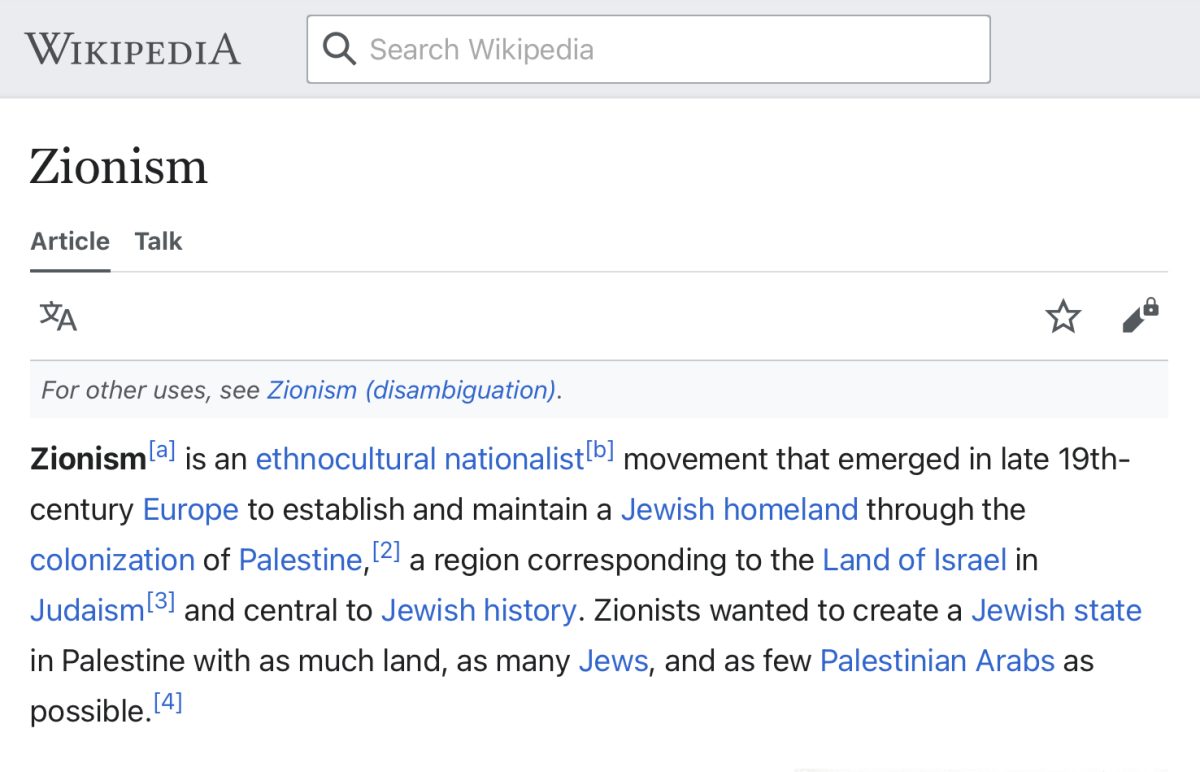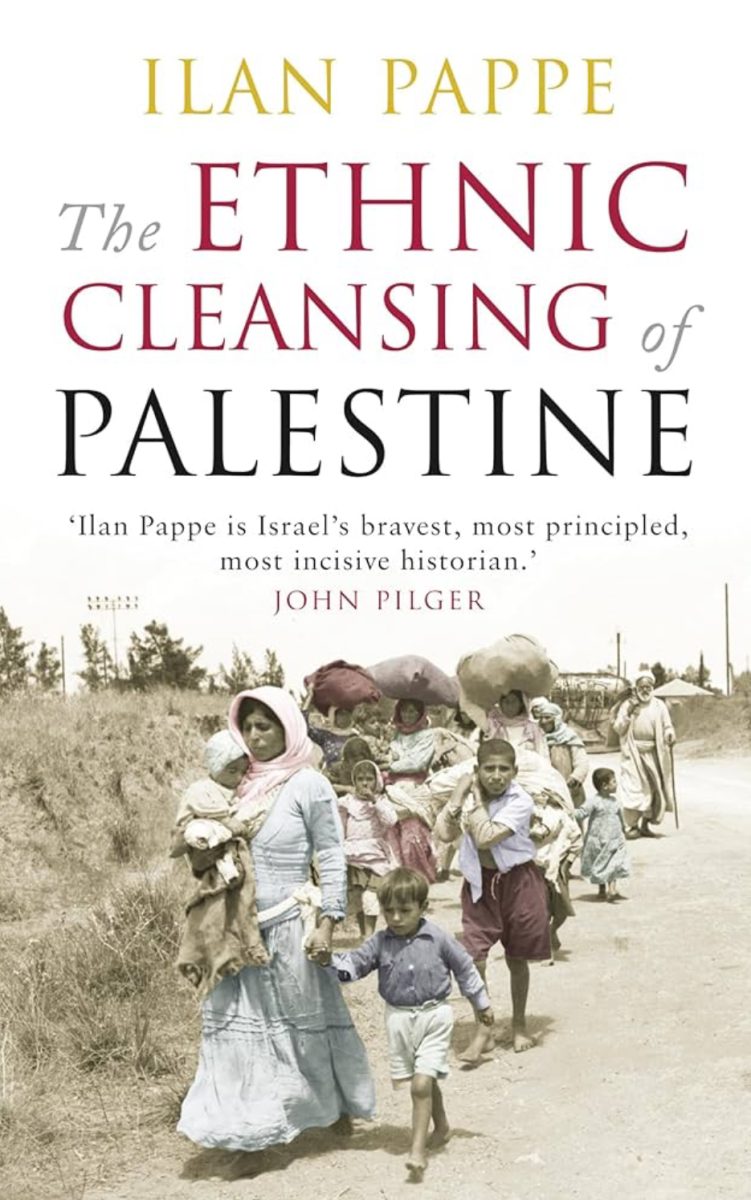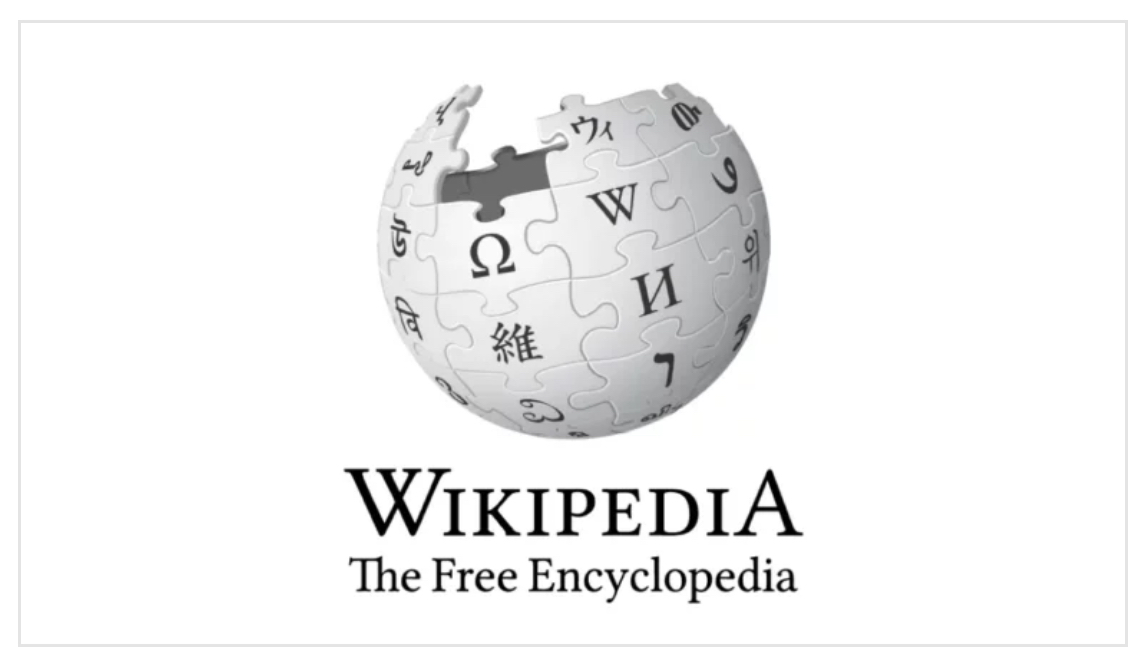In September 2024, Wikipedia implemented a notable change to its definition of Zionism. The updated entry states:
“Zionism is an ethnocultural nationalist movement. . . to establish and maintain a Jewish homeland through the colonization of Palestine.”
The revision replaced an earlier definition that emphasized Jewish self-determination, sparking a wave of international debate. Some critics argue the update reflects editorial bias, while others contend it aligns with long-established historical research and archival evidence.

Why the Change Went Largely Unnoticed—Until Now
What had quietly passed as an internal editorial decision in 2024 suddenly became a flashpoint in the global conversation on Zionism, colonialism, and the politics of historical narrative.
Initially, the change drew little attention. Without a formal announcement, only those monitoring Wikipedia’s revision history log noticed the shift. But in 2025, as scrutiny over Israel’s intensified military operations in Gaza escalated—with increasing civilian casualties—the updated definition began to appear for users seeking historical context. It quickly went viral across social media platforms, and was featured in international news coverage—sparking a wave of commentary, editorials, and political responses.
Wikipedia’s redefinition coincided with mounting allegations of genocide related to Israel’s military campaign in Gaza. By mid-2025, the assault on Rafah and the broader siege had prompted formal investigations and increased scrutiny from United Nations officials and international legal bodies.
The UN Commission of Inquiry cited evidence of possible violations of international law, including disproportionate use of force, targeting of civilian infrastructure, and obstruction of humanitarian access. In June, UN Secretary-General António Guterres called for an independent investigation into reported civilian fatalities near aid distribution centers. By July, Médecins Sans Frontières and other humanitarian organizations had issued public statements raising concerns about the conduct of military operations and the cumulative effects on Gaza’s civilian population.
A Scholarly and Archival Debate
Opponents of the change—including outlets like Israel Hayom—have denounced it as a politically motivated rewriting of history. One editorial called it a “hijacking of history by anti-Zionist activists.” Similarly, conservative publications such as the Washington Examiner criticized the redefinition, suggesting it reflects editorial bias and ideological influence. Let me know if you’d like the full text or a direct quote from their editorial.
But many historians say the change is grounded in archival evidence. Early Zionist leaders such as Theodor Herzl and Max Nordau openly used terms like colonization. Institutions like the Jewish Colonial Trust and the Palestine Jewish Colonization Association (PICA) were central to early land acquisition strategies.
Scholars such as Nur Masalha and Ilan Pappé argue that describing Zionism as a settler-colonial project is not politicized revisionism—it’s a historically accurate framework. Pappé’s book, The Ethnic Cleansing of Palestine details how depopulation policies were implemented during the 1948 Nakba. Noam Chomsky has similarly described Zionism’s goal as securing “maximal land with minimal Palestinians,” rejecting coexistence in favor of demographic control.

While these perspectives were long excluded from mainstream platforms like Wikipedia, their inclusion today marks not a departure from objectivity, but a rebalancing of historical narratives.
The Illusion of Neutrality
Critics argue the update violates Wikipedia’s neutrality policy, accusing editors of politicizing one of the platform’s most viewed articles. But defenders counter that the previous version was never neutral—it privileged dominant Zionist historiography and systematically excluded Palestinian perspectives.
Before the 2024 revision, the article made little mention of Jewish scholars like Ilan Pappé, Avi Shlaim, or Simha Flapan—figures who documented Zionism’s entanglement with colonial strategy and the systematic displacement of Palestinians.
Likewise, foundational Palestinian voices such as Edward Said and Rashid Khalidi, who have shaped scholarly understanding of nationalism and indigeneity, were largely absent. The result, say critics, was not a balanced entry but a selective and ideologically narrow presentation.
Editorial War Zones and Frozen Sentences
Wikipedia has responded cautiously to the growing dispute. In March 2025, the site froze edits to one of the most contested sentences—“Zionists wanted … as few Palestinian Arabs as possible.” That lock will remain in place until at least February 2026.
Administrators report that the Zionism article is now among the most heavily edited on the site, rivaling entries on abortion, 9/11, and the Russian invasion of Ukraine. Editors across the ideological spectrum accuse each other of coordinated manipulation and agenda-driven revisions.
At the heart of the dispute lies a fundamental question: Is Zionism a colonial enterprise imposed on native Palestinians—or a national movement of return by a historically displaced people?
Proponents of the settler-colonial model argue that Zionism mirrors familiar European settler paradigms in Australia, South Africa, and the United States—marked by land seizure, migration, and indigenous displacement. The “Zionism as Settler Colonialism” entry now cites dozens of peer-reviewed sources supporting this interpretation.
Wikipedia’s Role as a Global Narrative Engine
Opponents of the colonial framing—such as Benny Morris and Shlomo Ben-Ami—reject it entirely. They characterize Zionism as a movement born from Jewish persecution, pogroms, and genocide—a survival-based initiative for national liberation, however flawed in its implementation.
Wikipedia’s massive reach amplifies the stakes. With over 18 billion monthly pageviews, it is often the first stop for readers seeking clarity on contentious global issues. Advocacy groups like CAMERA have long accused the platform of anti-Israel bias and previously launched campaigns to influence Israel-related entries—efforts that were later flagged and sanctioned by Wikipedia administrators. Meanwhile, Palestinian digital rights organizations and scholars have argued that Wikipedia has sanitized or omitted Palestinian narratives, pointing to long-standing editorial disparities in how the Israeli–Palestinian conflict is represented.
In 2025, even the Anti-Defamation League alleged “coordinated pro-Palestinian editing,” prompting an internal Wikipedia review—whose findings have yet to be made public.





